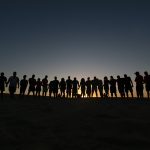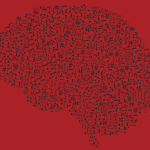I’m sure you’re aware that bright evening lights and using screens close to bedtime make it harder to fall asleep. Research from Northwestern University’s Feinberg School of Medicine in Chicago has now shown that even low levels of light while we sleep raise our heart rate, blood glucose and insulin, thus increasing our risk of heart disease, type 2 diabetes and obesity.
What constitutes low levels of light? A bedside lamp, keeping the TV on or street lights shining through thin curtains. Participants in the study spent two nights in a sleep laboratory. On the first night they all slept in a dark room. On the second night, half of them slept in a room with a low level of light (<100 lux). On both mornings, everyone had their blood sugar and insulin measured. Those who’d slept in the light room saw a rise in their glucose and insulin, while those who’d spent both nights in a dark room saw no change. Even though participants did not report any noticeable difference in the quality of their sleep, their brain was nonetheless affected.
Despite our eyes being closed, our brain and body register ambient light. This activates our fright, flight, fight response and puts our body in a mild state of stress. As a result, our breathing becomes irregular and shallow and we spend less time in slow wave and REM (dream) sleep, thus also exacerbating obstructive sleep apnoea.
An earlier four-year sleep study in Japan that ran from 2010 to 2014 found that even minimal light exposure — above 5 lux or 60cm (2 feet) away from a candle — while a person sleeps increases the likelihood of developing depression, even when other predisposing factors are ruled out.
The take-home is to block out all light while you sleep — opaque curtains, eye masks (I’m sure you’ll find some that match your covid face mask) and if you use a digital clock or phone as an alarm, cover them with a dark cloth so you’re not exposed to light from the clock numbers or incoming messages. This is an easy fix that can make a big difference to our health.
Please forward this Health-e-Byte to anyone who could benefit from a better night’s sleep.



Hi Dr H. How about natural starlight/moonlight?
Does this have the same effect? Many thanks Tracy
The studies you present here are really interesting. I thought if I had my brightness down on my phone, I could get away with it ha!
I’d really love to hear your thoughts on blue light glasses. I’ve found they’re making a massive difference to my eye strain when I need to use the laptop or phone.